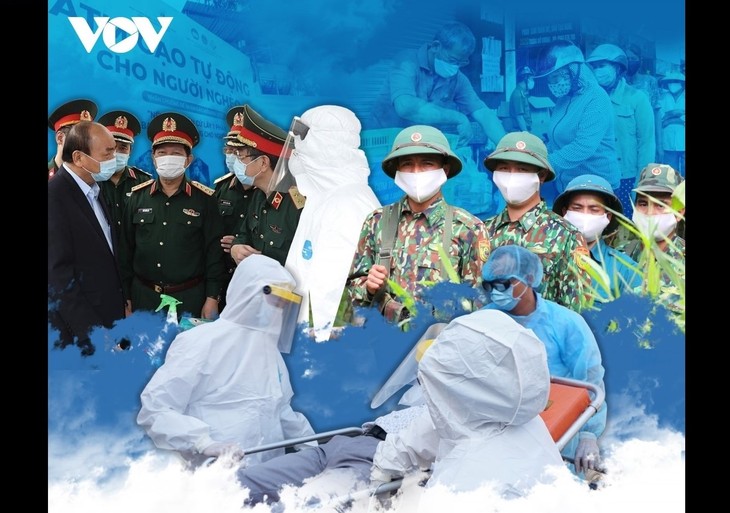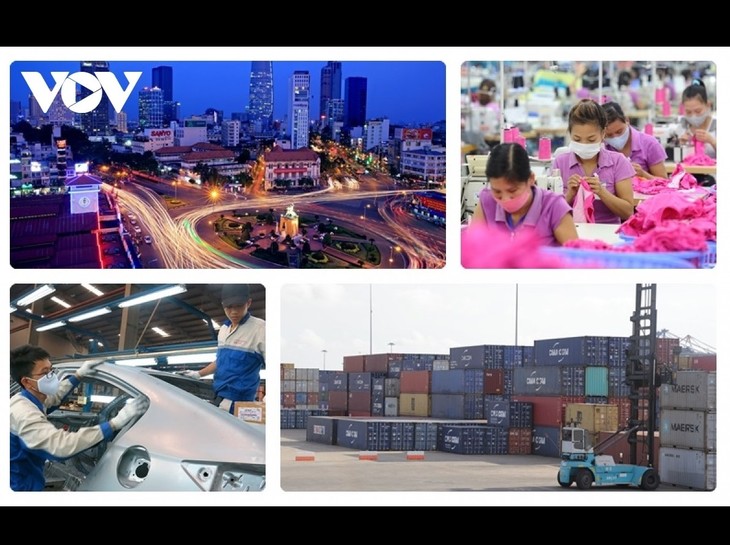(VOVWORLD) - Credit rating agency Moody’s on March 18 upgraded Vietnam’s sovereign credit outlook to “positive”. On March 7, Vietnam was listed for the first time with an index of economic freedom ranking 90th among 178 listed countries. Vietnam is the only country in ASEAN to see improvement in Brand Finance’s Global Soft Power Index in 2021.
 Vietnams' effective response to COVID-19 receives international praise Vietnams' effective response to COVID-19 receives international praise |
The concept of “soft power” was first introduced by American Professor Joseph Samuel Nye, Jr. of Harvard University in a book published in 1990. For Nye, soft power is the ability to influence the behavior of others to get the outcomes you want – co-opts people rather than coerces them.
In contrast with “hard power”, which resorts to military and economic force, a country’s soft power rests on three resources - its culture, its values, and its policies.
According to London-based Brand Finance, 2020 was a year like no other, putting the nations of the world to the test as they fought to negotiate the fallout and devasting repercussions of the COVID-19 pandemic. No nation was free from the pandemic turmoil and all nation brands were impacted. The Global Soft Power Index was included to reflect this.
 Vietnam's rankings have improved Vietnam's rankings have improved |
The Global Soft Power Index 2021 is based on responses gathered from over 75,000 sources in more than 100 countries. The criteria include Awareness and Familiarity which measure which nation brands people know, and which have greater soft power; Overall Influence which shows the degree to which a nation is seen to have influence in the respondent’s country and on the world’s stage; Overall Reputation measuring a nation’s positive reputation globally; Performance on the core 7 Soft Power Pillars (Business & Trade, Governance, International Relations, Culture & Heritage, Media & Communication, Education & Science, and People & Values); and Performance in tackling the COVID-19 pandemic.
Brand Finance praised Vietnam’s improved status which was due as much to the government’s effective pandemic response and support for businesses to build and promote their brands inside and outside the country as to the dynamism of Vietnamese businesses. The report says that Vietnam, ranking 47th in the overall Index, is a nation that objectively managed COVID-19 extremely well. Vietnam was spared a year of lockdowns and besieged hospitals, and achieved one of the lowest COVID-19 infection and death rates in the world. Not only was its response to the pandemic impressive, but Vietnam also achieved one of the highest economic growth rates globally in 2020 – one of only a handful of countries with positive growth in 2020. In the Asia-Pacific region, Vietnam’s influence was ranked 9th. Its total scores was 33.8/100, above many other Southeast Asian countries including the Philippines, Cambodia, and Myanmar but behind Singapore, Thailand, Malaysia, and Indonesia.
Samir Dixit Managing Director of Brand Finance Asia Pacific, says Vietnam seems to have managed all aspects of its image quite well, especially the integration and alignment of its nation brand and product brands. Prime Minister Nguyen Xuan Phuc authorized the Vietnam National Brand Program from 2020 to 2030, which aims to increase the value and ranking of Vietnam’s nation brand while creating 1,000 strong product brands. Product brands are managed by Vietrade under “Vietnam Value” program. Vietnam had established diplomatic relations with 187 of the 193 UN members and has negotiated and signed several new-generation FTAs including the Comprehensive and Progressive Agreement for Trans-Pacific Partnership (CPTPP) and the EU-Vietnam Free Trade Agreement (EVFTA) to become an important link in all regional and intraregional economic networks. The “Vietnam Value” program and the FTAs are absolutely crucial to Vietnam’s overall growth, reputation and soft power, says Dixit.
Vietnam's soft power stems not only from its heroic history, tradition, culture, and peace-loving policy, but also from the exploitation of its new status and advantages. In the difficult context of 2020, Vietnam’s successful “dual role” performance, as both ASEAN President and non-permanent member of the UN Security Council, was a testament to the effective application of soft power in its multilateral and bilateral diplomatic relations.
With the COVID-19 pandemic pushing many countries into simultaneous health and economic crises, Vietnam is seen as a safe haven. This makes it easy for Vietnam to attract international investment, events, and tourists, which creates great opportunities for the country’s economic development. Vietnam has turned the challenges of the COVID-19 crisis into opportunities to promote its products and national brand.
Enhancing soft power is a way for Vietnam to boost integration. In addition to building and promoting soft power, Vietnam also needs to strengthen its hard power and create a synergy – “smart power” - to demonstrate the nation’s new geo-strategic and geo-economic position.